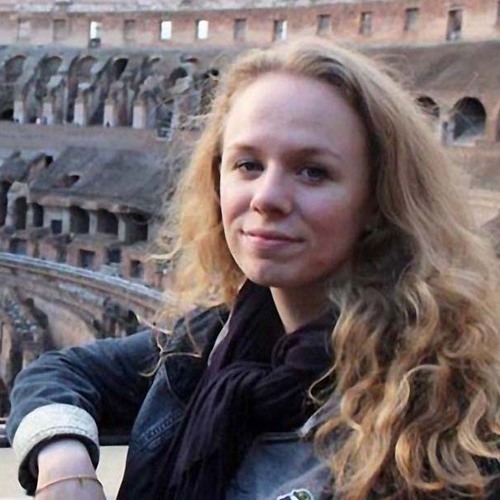Careers
Study Film, Television, and Theatre. Do Anything.
What can I do with a Film, Television, and Theatre major?
Some majors will go into the industry as artists, agents, producers, managers, or other jobs in arts and entertainment; some of you will pursue graduate studies to become teachers, or work in museums, or as programmers, or in other cultural educational venues; and some will take the analytic and storytelling skills you have learned in FTT into careers in law, public relations, advertising, government, medicine, and myriad other careers.
Skills you'll learn
- Empathetic understanding of other viewpoints and people
- Creative problem solving
- Ability to explain complex concepts and ideas
- Collaboration and teamwork
- Effective oral communication
- Ability to meet deadlines
- Ability to create compelling audiovisual material
- Organization and project management
- Strong writing, critical and creative
- Adaptability and flexibility

Liz Hynes ’17
Writer, Last Week Tonight with John Oliver
“The FTT major required constant unconventional problem-solving, whether it was figuring out a unique approach to a paper or coordinating logistics of an early morning shoot in subzero weather. I am a more fearless, solution-oriented team player because of FTT — It provided skills that will translate into any career."
-
Liz Hynes ’17
Writer, Last Week Tonight with John Oliver
“The FTT major required constant unconventional problem-solving, whether it was figuring out a unique approach to a paper or coordinating logistics of an early morning shoot in subzero weather. I am a more fearless, solution-oriented team player because of FTT — It provided skills that will translate into any career."
-
Michael Swanson ’93
Emmy-winning producer and studio executive
“The liberal arts were a wonderful foundation from which to build. On my TV shows or films, it takes hundreds of people to complete a project, and everyone is different. I have to know how to communicate effectively with my team in a way that will get results. I learned that at Notre Dame, where I worked with people from all walks of life in study groups and in the classroom.”
-
Jack Blakey ’88, J.D. ’92
U.S. District Court judge, Chicago
“Some people think it’s such a difference, going from the theatre world to the legal world, but it’s really a seamless transition. Arguing in front of a jury or arguing in front of a judge, whether it’s a legal principle or a set of disputed facts, you have to have the power of language and understand the power of a strong narrative: What are the issues? What is the story? And how do you communicate that intellectually and with emotional content and a sense of history?”
-
Jennifer Sharron Richardson ’01
Co-Executive Producer at Jimmy Kimmel Live
“When you go to Notre Dame, you feel like you’re set up for success. What I found to be most important about Notre Dame was that you didn’t feel like you were on your own, fighting for your own direction. There were people rooting for you and helping you find your way.”
Richardson started as a production assistant at Fox Sports, where she helped produce Jimmy Kimmel’s segment. When Kimmel left to launch his own late-night talk show, he invited her to come with him. She eventually rose to become one of the show’s co-executive producers. Read her story
-
John Klein '06
Assistant Professor and Filmmaker
"The professors in the FTT program at Notre Dame prepared me for the analytical, technical, and creative aspects of filmmaking, introducing me to all different modes of storytelling and image creation and giving me the freedom to experiment with those choices in my own work. To this day, I have collaborators that I either graduated with or was taught by at Notre Dame, and they're some of my most cherished creative relationships."
Klein has worked as a freelance director, producer, and cinematographer in Chicago for fifteen years, having shot films such as the Lifetime movie NightLights and the David Dastmalchian-Kevin Pollak vehicle Teacher, as well as the Notre Dame Bengal Bouts documentary Strong Bodies Fight alongside Prof. William Donaruma ('89) and Mark Weber ('09) . Through his production company Glass City Films, he has directed or produced dozens of short- and feature-length films, and raised $35k for his award-winning feature film Chrysalis; his newest film Static Space is currently on the festival circuit. He currently teaches digital media and film production at Elmhurst University.
94% of recent Notre Dame Film, Television, and Theatre majors find full-time employment, enroll in graduate school, enter service programs, or launch independent projects within six months of graduation.
Note: Outcomes data comes from First Destination reports, a survey of recent graduates conducted by the Notre Dame Center for Career Development and Office of Strategic Planning and Institutional Research. Status is known for more than 90% of each graduating class.
Independent projects include activities such as writing a novel, making a film or fine arts project, traveling the world, caring for a family member, etc.